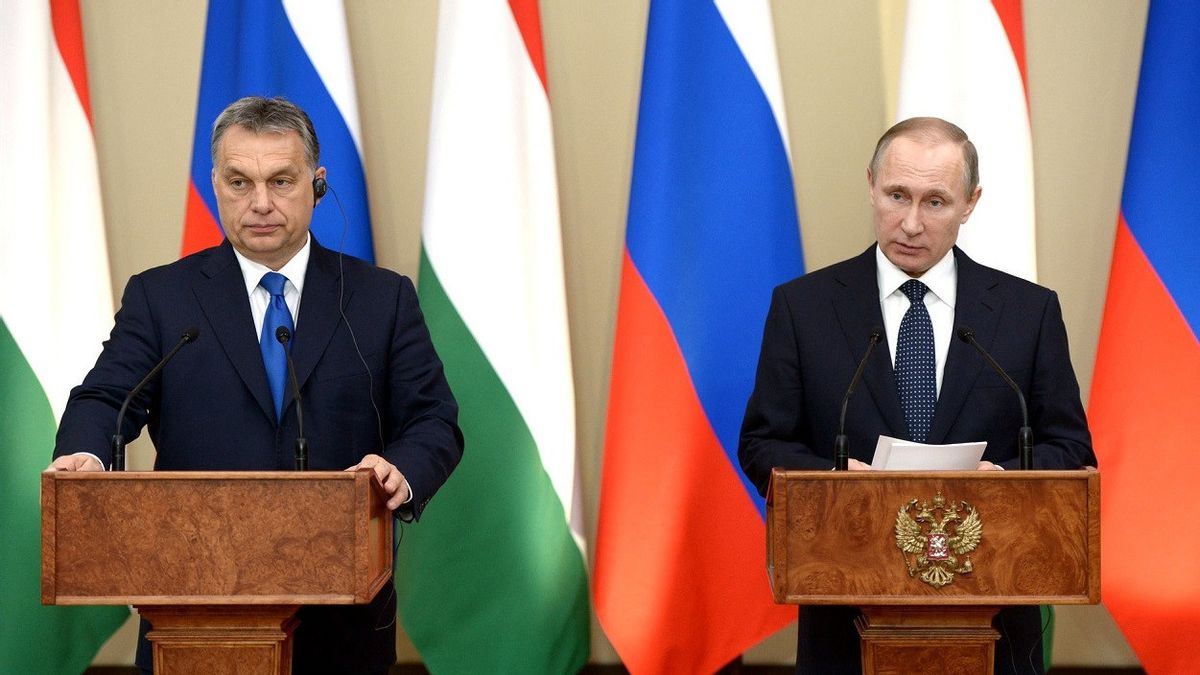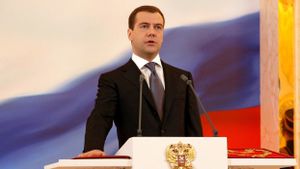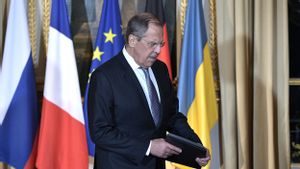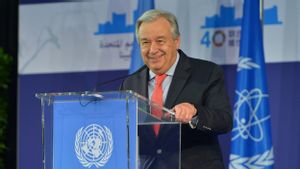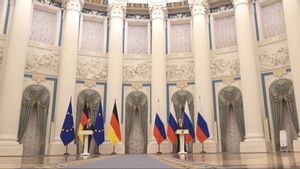JAKARTA - Hungary said on Wednesday it was ready to pay rubles for Russian gas, breaking ties with the European Union, which has sought a united front against Moscow's demand for payments in the currency.
Hungary will pay for the delivery in rubles if Russia requests it, Prime Minister Viktor Orban said at a news conference on Wednesday in response to a Reuters question.
Russian President Vladimir Putin has warned Europe it risks cutting gas supplies unless it pays in rubles, in reaction to the blow of Western sanctions over Moscow's invasion of Ukraine.
With weeks before the bill is due, the European Commission said those with contracts requiring payment in euros or dollars should comply.
Hungarian Foreign Minister Peter Szijjarto earlier said EU authorities had "no role" in its gas supply deal with Russia, which is based on a bilateral contract between Hungary's state-owned MVM unit and Gazprom.
The European Commission does not comment on declarations from national authorities, a spokesman said.
Hungary is known to be one of the few EU member states to have resisted energy sanctions against Moscow in response to the invasion, which Russia calls a "special military operation".
The European Commission's intention "that there should be some kind of joint response from the countries importing Russian gas" was not deemed necessary, Hungarian Foreign Minister Peter Szijjarto said, adding that individual countries had signed bilateral contracts.
"And, no one has a say in how we change our own contracts," he said, cited from Reuters, April 7.
Hungary, which relies heavily on imports of Russian gas and oil, signed a new long-term gas supply deal last year, under which Gazprom is expected to deliver 4.5 billion cubic meters of gas per year.
Orban, whose government has maintained close business ties with Moscow for more than a decade, came to power for a fourth straight term in elections on Sunday, partly on promises to keep gas supplies safe for Hungarian households.
While President Putin's request has caused a stir in many European capitals, his government, which on average relies on Russia for more than a third of their gas, is discussing the matter with energy companies.
On Monday, Slovakia said it would act jointly with the European Union, while dominant Polish gas company PGNiG has retained its original contract with Gazprom which expires at the end of this year, binding both parties.
Separately, Austria's OMV and Russia's Gazprom have been in initial contact about gas payments in rubles, an OMV spokesman said on Friday, although the government in Vienna said there was no basis for payments in any currency other than euros or US dollars.
Ukrainian Foreign Minister Dmytro Kuleba insisted an embargo on Russian gas and oil was necessary, but the European Union has so far stopped short, while preparing to propose a ban on imports of coal and other products.
European buyers are stepping up coal shipments from around the world against a backdrop of a proposed EU ban on Russian imports, as well as a scramble to reduce tight gas supplies, according to shipping data and sources.
Furthermore, President Putin has discussed expanding Moscow's economic cooperation with Belgrade, including in the energy sector, with his Serbian counterpart Aleksandar Vucic.
Serbia's contract for Russian gas expires on May 31. "Talks about a new contract need to be launched as soon as possible," said a statement from Vucic's office.
SEE ALSO:
Latvia's biggest gas trader, the third owned by Gazprom, said it was considering whether to pay in euros or rubles for Russian gas. However, a spokesman for the Latvian Ministry of Foreign Affairs said: "Latvia does not support payments in rubles and there should be a common EU approach."
Lithuania said it would no longer import Russian gas to meet its domestic needs, becoming the first country in Europe to have secured its independence from Russian supplies.
To note, Russian gas shipments to Europe via the three main pipeline routes were overall stable on Wednesday.
The English, Chinese, Japanese, Arabic, and French versions are automatically generated by the AI. So there may still be inaccuracies in translating, please always see Indonesian as our main language. (system supported by DigitalSiber.id)
